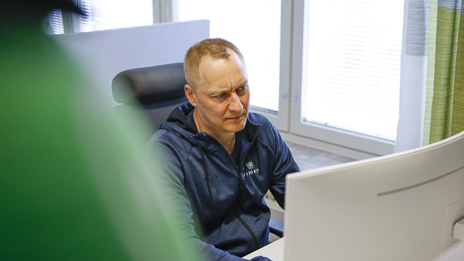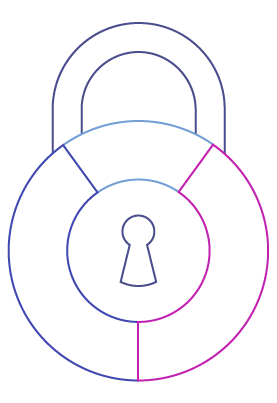2025 The pace of change in the world has accelerated and technological development has accelerated enormously. Software development is facing the biggest change as artificial intelligence has reached a level of maturity where it is being adopted in all development work.



However, the networked world has also become less secure, and greater attention must be paid to the reliability of software. We examine how AI is revolutionising the way software quality and reliability are managed and how it will concretely change testing and software development.
We have already learned how artificial intelligence can be used to develop testing methods that can automatically create test cases, perform tests and analyse results. We can automate simple, routine tasks such as writing code based on user stories, creating test cases for them and documenting everything. This allows developers and testers to spend more time focusing on strategic planning and challenging problems that require creativity, creating more reliable code in collaboration with AI.
Although we have high expectations for artificial intelligence in software development, human expertise will continue to be needed to ensure the reliability of software. AI works best as a facilitator, but ultimate reliability is ensured by critical thinking and professional software development expertise.
The breadth of human understanding cannot be summarised in a prompt. Software experts must have a thorough understanding of who the software users are and how, when and where they use it. We must understand all user requirements for the software and the system operating environment in detail. Reliable software can only be created in the right operating environment by observing what needs to be built and validating the developed software throughout to ensure that it works in the right production environment.
The symbiosis between artificial intelligence and humans leads to more efficient innovation. At its best, AI expands human thinking and reveals perspectives we have not thought of before. However, it is still up to humans to make the final critical assessment of whether AI proposals are reliable. AI will continue to be part of a carefully designed development process, in which the final decisions are made by humans.
Artificial intelligence is also creating entirely new roles in software development. Even in the development phase, AI can improve code quality. Intelligent code analysis tools that utilise natural language processing and machine learning can identify potential errors, security vulnerabilities and poor coding practices in real time. These tools can provide developers with immediate feedback and suggestions for improving the code, which naturally reduces the number of errors found later on.
Machine learning algorithms can analyse various reliability metrics, log data and learn from previous test results, enabling the construction of more intelligent automated testing. Artificial intelligence can also be used to identify unusual behaviour patterns or performance anomalies, improving software reliability by anticipating and preventing system failures.
Artificial intelligence can also be used to optimise software performance and scalability. Machine learning algorithms can analyse system performance under different load conditions and identify bottlenecks or inefficiencies. Based on this information, resource allocation can be automatically adjusted or changes to the architecture can be proposed to improve performance. Artificial intelligence can be used to improve the efficiency of information systems and save costs.
The introduction of artificial intelligence also involves potential risks, which it is important to be aware of and to develop a plan to manage them. There is no single, universal AI solution that can completely replace human expertise. The use of artificial intelligence always requires careful planning, high-quality data and skilled experts. It is also important to ensure that the decisions made by artificial intelligence are transparent and understandable and do not contain unnecessary hallucinations.
Machine learning models are highly dependent on the data fed into them. If the data fed into the model is incomplete, incorrect or contains systematic biases, the AI will, at best, learn to produce unreliable results. In test automation, for example, incorrectly trained AI may ignore important test cases or even produce false test results. Similarly, in code analysis, an incomplete AI model can lead to AI favouring only certain coding practices or completely ignoring certain types of errors.
The internal workings of complex deep learning models can be difficult to understand. If the results produced by AI cannot be explained, it is difficult to assess their reliability and correct any errors. Blind trust in the results produced by AI without sufficient human oversight can lead to serious consequences if the AI makes an incorrect decision or overlooks something essential. Therefore, human expertise and critical evaluation remain essential for software quality assurance.
AI models also require continuous maintenance, retraining and monitoring to remain up to date and effective as software changes. As technology evolves, AI models will also need to be updated and possibly replaced with new ones.
Responsibility issues are also highlighted in the use of artificial intelligence. Information security and privacy are extremely important considerations. The data required for training and using artificial intelligence may contain sensitive information, the protection of which is of paramount importance. Data restriction and protection must be taken into account, as AI services may be vulnerable to various types of attacks. Confidential information cannot be entered into AI services operating on public networks without understanding the associated risks. We all need to develop our AI awareness so that we can trust the networked world.
doors Artificial intelligence opens doors that were previously closed. It speeds up and facilitates software development, frees up valuable time and offers new perspectives on quality assurance. However, AI is only one part of the picture – it works best when combined with human expertise and critical quality assurance.
At Wirokit, we believe that reliable software is born out of collaboration, where every team member, both human and AI agents, work towards a common goal: software that never fails. AI allows us to focus on what matters most: creating reliable and sustainable technology.
We Rock AI – let's code a more reliable tomorrow together!

